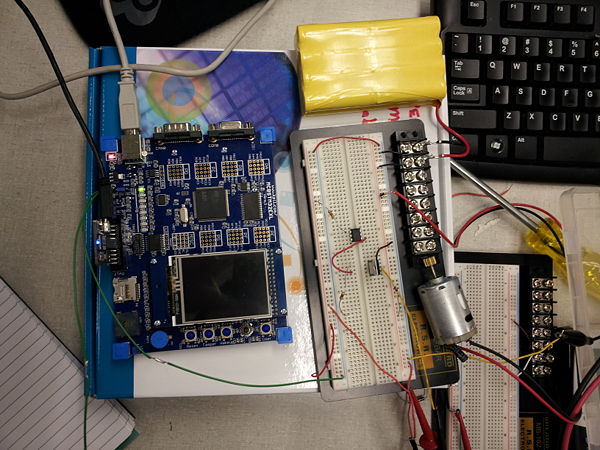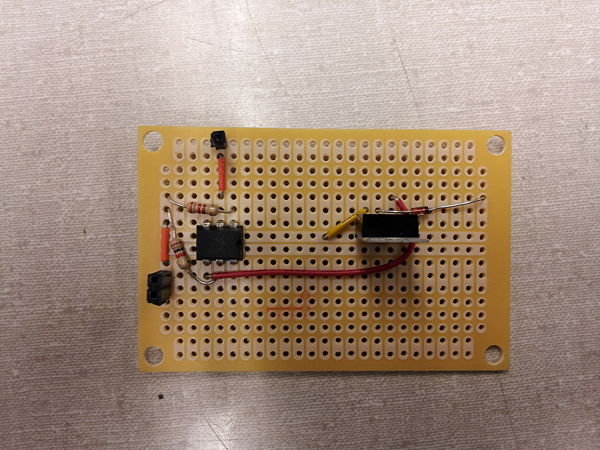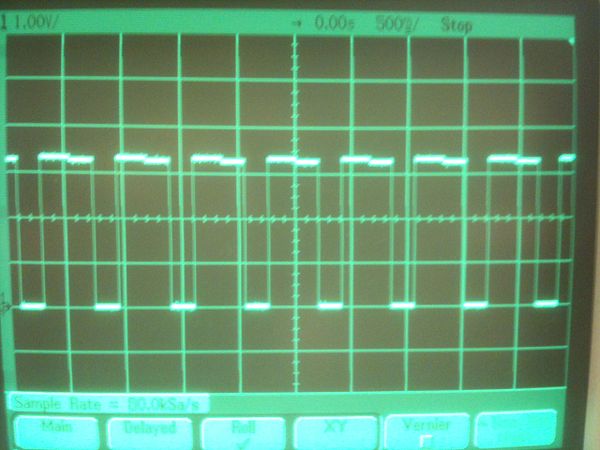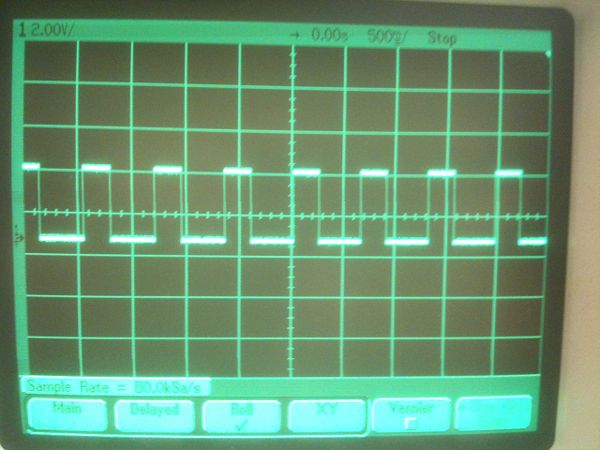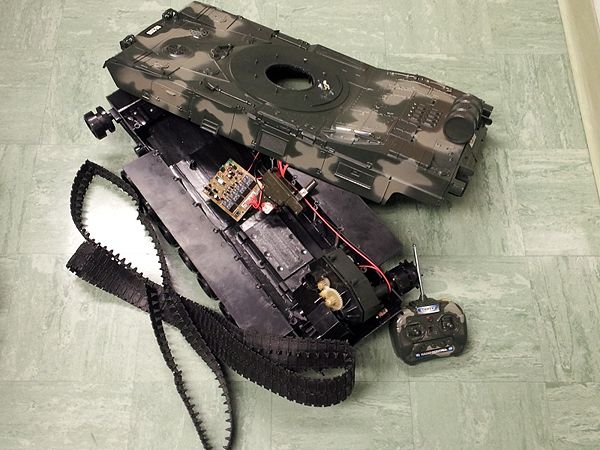Topics from Meeting (November 3)
Attendees: Jason Holmes, Scott Stack, Kin Chin Chua, Michael Piercy
Group worked to get the PWM driving the DC motor circuit to work. Also finished design review topics.
Design Review Topics
- Objective:
- Collaborate with Hong Kong University of Science and Technology to develop a vehicle control system using the internet.
- Each team is building a vehicle that is capable of receiving commands from the internet via WI-FI. Each team is also creating their own website that is capable of controlling both vehicles. This way, we will have to work with Hong Kong to develop a protocol that will enable the websites to communicate with both vehicles.
- Applications of this technology:
- Virtual Presence – having a physical presence in a room across the world and being able to interact with that environment. Useful in areas like business meetings etc…
- Remote Exploration – Being able to log into a website and remotely survey an area without being physically present. Display information such as GPS location, orientation (accelerometer, temperature, etc… to the user.
- Completed Tasks
- hold teleconference to communicate with HKUST on deciding the protocols, processors, vehicle control options, vehicle platform.
- designed a block diagram to explain the basic idea of the control system.
- include the diagram in slides
- created a poster for and participated in VIP poster session.
- include the poster in slides
- did research and chose the appropriate parts such as:
- vehicle platform (tank)
- big enough to be able to get everything mounted inside the vehicle
- low speed so that it will not crash
- low cost
- microcontroller board (Keil MCBSTM32EXL)
- Arm M3 Cortex processor
- sufficient documentations and software libraries
- includes all the peripherals we need such as A/D, PWM, SPI, UARTS and so on
- wireless transceiver ()
- IR sensors
- to detect the objects in certain range (20 cm to 150 cm)
- to prevent crash
- pushbuttons
- due to the IR sensors only functioning above 20 cm, it prevent crash into objects in the range of 20 cm.
- vehicle platform (tank)
- tried simple programs on the microcontroller board
- picture taken
- made a list of everything that needs to be interfaced with the processor and which kind of interface each one needs.
- refer to rhea (Oct. 25 documentation)
- dissembled the tank and found out how the control works
- attach picture
- tried designing a separate circuit to control the motor by using the chosen microcontroller board.
- Future Tasks
- Wireless Transceiver interfacing
- Acquire the wireless transceiver
- Successfully configure it to interface it with a development board to send/receive data to some source.
- Camera interfacing
- Acquire the camera and materials
- Figure out how read the image data coming from the camera
- Interface to it with a development board and use the LCD on the development board to display the camera image.
- Peripheral interfacing and Website Development
- Write code to initialize the I/O ports to make use of the IR voltages and pushbutton signals.
- Interface to the motors on the tank and write code to control them
- Begin development of a website that will be able to communicate with the vehicle.
- Wireless Transceiver interfacing

